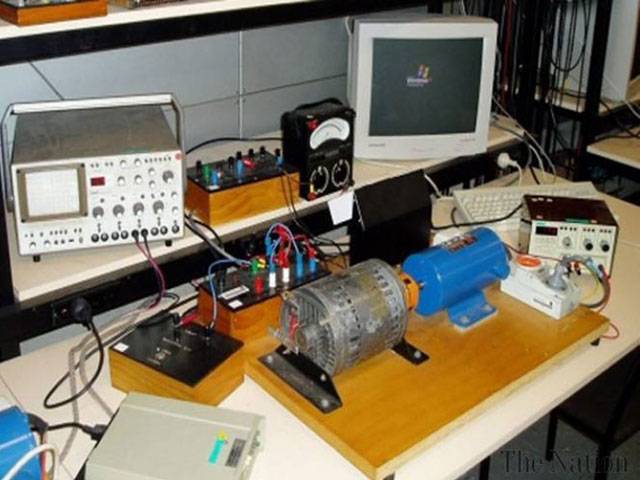LONDON - One of the biggest challenges for South Asian countries is to unlock the hidden potential of the millions of young people entering the workforce. The region can benefit from skilled youth, resulting into great gains in poverty reduction, employment generation and economic growth. In this context, the importance of skills development as a drive of socio-economic development is paramount.
This was the crux of the discussions on ‘Policy dialogues on skills development in South Asia’ organized by the British Council and Royal Society of Arts in London.
The participants from Pakistan observed that despite reasonable increase in funding the investment in Technical and Vocational Education (TVE) in Pakistan is still low at 1.3 per cent of Gross Domestic Production.
Around 150 delegates from all over South Asia and the UK were invited to two-day conference to share their views and recommendations for the British Council.
Key topics for discussions, included Youth Unemployment and Skills Mismatches; Skills Standards; Reaping the Demographic Dividend; Engaging Industry in Skills Development; Skills for Economic Growth, Global Skills Marketplace: Challenges and Opportunities; Key Trends in South Asia; Prosperity and Social Inclusion; Knowledge Economy or Know-How Economy; From Bricks to Online Click Moving to a Demand Led Skills System and Lifelong Learning – Meeting the Demand.
One of the reports shared during the conference was a research report for the British Council by The Economist Intelligence Unit (EIU). This report titled, ‘Skills development in South Asia: Trends in Afghanistan, Bangladesh, India, Nepal, Pakistan and Sri Lanka’ was focused upon skill development, providing a detailed analysis and data of the region.
Astounding data from the research report warned that South Asia needs to create one million additional skills training places every month to avoid a rise in unemployment and recession in their economies. Quoting the reporter, the speakers said that 100 million skilled trainees needed to spur economic growth and presently, South Asia lacks 96 million skill workers.
Looking at skills development trends in Pakistan, Afghanistan, Bangladesh, India, Nepal, and Sri Lanka, where 20% of the region’s 1.6 billion people are aged between 15 to 24, they said and added that in order to meet the demand of the potential burgeoning work force, South Asia will first have to address its fragmented technical and vocational education and training sector, the lack of private and public funding as well as the negative perception of vocational training in society.
Peter Upton, the British Council’s director in Pakistan, observed that most of the countries, including Afghanistan, Bangladesh, India, Nepal and Sri Lanka, already have systems in place that would foster private-public partnerships, since most TVET providers in these countries straddle the public and private sector. Pakistan is the only exception where the public arm is the dominant provider. The region’s TVET market however, is small and highly fragmented and it lacks an institutional framework big enough to meet the current demand for over 100 million training places.
There are more than 750 universities in South Asia, with a further 1,500 planned to open but traditional universities still have a hold on resources and funding. Upton said that this is despite the reality that vocational skills development has a better framework for integrated learning than traditional higher education. Some participants were of the view that the private sector after enhancing the skills of their workers through in-house training often fails to increase their wages in line with their enhanced skills. This results in workers seeking jobs elsewhere.
Experts said that almost a whole generation has been lost in South Asian region due to absence of relevant and demand-driven skills.
British Council’s director in Pakistan advised the planners in the region to initiate specific programmes for jobless and underemployed youth. He said the children leaving schools early should be provided with alternate route. He said that that there should be an increasing engagement with the industry. India and Bangladesh are actively engaging various sectors of their industry in youth training, he added.
Dr Allah Bakhsh Malik, an educationist and federal additional secretary, said that investment in TVE in our country is yet low at 1.3 percent of gross domestic product. He said though enrollment in schools has increased by 13 percent, 40 percent children still drop out in grade four and only 3 percent goes to colleges and universities. He said youth unemployment is high due mainly to mismatch of skills.
He said even after doubling the TVE capacity we will not be able to cope with the demand for skills. He said the private sector particularly the industry would have to play its due role in accelerating the skill training in their respective fields. He said it has been proved in Pakistan that with basic skills even the illiterate segments of the society can be engaged in economic activities.
Friday, April 19, 2024
only 1.3pc of GDP invested in tech and vocational edu

President calls for meaningful dialogue to end polarisation
April 19, 2024
KP minister briefed on issues about sales tax on services
April 19, 2024
64th anniversary of freedom fighter Mirzali Khan marked
April 19, 2024
893,000 students appear in SSC exams in KP
April 19, 2024
Hepatitis Challenge
April 18, 2024
IMF Predictions
April 18, 2024
Wheat War
April 18, 2024
Rail Revival
April 17, 2024
Addressing Climate Change
April 17, 2024
Justice denied
April 18, 2024
AI dilemmas unveiled
April 18, 2024
Tax tangle
April 18, 2024
Workforce inequality
April 17, 2024
New partnerships
April 17, 2024
ePaper - Nawaiwaqt
Advertisement
Nawaiwaqt Group | Copyright © 2024





